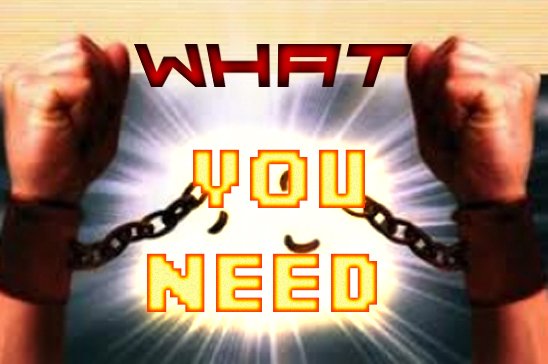After you read this, write "Jehovah is my Shepherd."

The prison of necessity. He has seen his prisoners. They have "need." They always need something. They want something bigger. More beautiful. Faster. Thinner. They need.
There is not much that they need. They only want one thing. A new job. A new car A new house. A new wife They do not want much. Just one thing.
With only "one thing" they will be happy. And they are right: they will be happy.
When they have "one thing" they will come out of prison. Then something happens.
The smell of a new car fades. The new job gets old. The neighbors buy a bigger television. The new wife has bad habits. The spark is gone, and before you know it, another ex-convict breaks his word and goes back to prison. Are you in prison? Yes, if you feel better when you have more and worse when you have less. Yes, if your joy is a distance delivery, a distance transfer, a distance award or a distance renewal. If your happiness comes from something you deposit, drive, drink or eat, acknowledge it: you are in a prison, the prison of need.
That's the bad new. The good news is that he has a visitor. And your visit has a message that can give you freedom. Go to the visiting room.
Take a seat, and see the other side of the psalmist David. He beckons him to lean towards him. "I have a secret to tell you," he whispers, "the secret of satisfaction:" Jehovah is my shepherd; I will lack nothing " (Psalm 23.1).
David has found the pastures where discontent will die. It is as if he said: "What I have in God is greater than what I do not have in my life."
Think for a moment about what you have. Think of the house you have, in the car you drive, the money you have saved. Think about the jewelry you have inherited and the actions you have traded and the clothes you have purchased. See all that you have accumulated, and let me remind you of two biblical truths.
What you have is not yours. Ask any forensic doctor.
Ask any embalmer. Ask any funeral director. Nobody takes anything with them. When one of the richest men in history, John D. Rockefeller, died, his accountant was asked: "How much did John D leave?" The answer was: "Everything. As he came out of his mother's womb, naked, so he returns, leaving as he came; and he has nothing of his work to carry in his hand "(Ecclesiastes 5.15).
Of all that, nothing is yours. And do you know anything else about all those things? They are not from you. What you are has nothing to do with the clothes you wear or the car you drive. Jesus said: "The life of man does not consist in the abundance of the goods he possesses"(Luke 12:15). Heaven does not know him as the type of the beautiful suit nor as the woman of the big house nor the boy of the new bicycle. Heaven knows your heart. "Jehovah does not look at what man looks at; for man looks at what is before his eyes, but Jehovah looks at the heart "(1 Samuel 16.7). When God thinks of you, he looks at his compassion, his devotion, his tenderness or lightness of mind, but not his things.
And when you think of yourself, you should not do it any other way. If it is defined by the things you have, you will feel good when you have a lot and bad when you have little. Contentment comes when we can truly say with Paul: "I have learned to be content with whatever my situation is. I know how to live humbly and I know how to have abundance " (Philippians 4.11-12).

I need very GOD love in my live